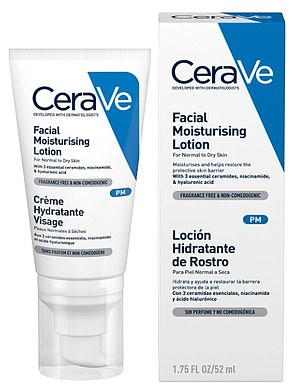Benefits of ‘miraculous’ wrinkle-busting skincare ingredient ‘are oversold’: Scientists debunk popular claim about hyaluronic acid
- The ingredient in serums and moisturizers is said to soften wrinkles
- Researchers say hyaluronic acid retains less water than previously claimed
It’s the ‘miracle’ ingredient that promises to smooth wrinkles, improve elasticity and boost hydration.
But the benefits of hyaluronic acid – found in many popular skin care products – may be overstated, scientists say.
It was previously claimed that the ingredient, which absorbs moisture to form gels, can hold a thousand times its weight in water.

The benefits of hyaluronic acid may be overstated, scientists say. The ingredients can be found in many products, including anti-aging serum (pictured left) and moisturizers (pictured right). Although it improves skin hydration, reduces wrinkles and increases firmness, new research shows that hyaluronic acid retains drastically less water than previously claimed.
But while it improves skin hydration, reduces wrinkles and increases firmness, new research shows that hyaluronic acid retains drastically less water than previously claimed.
A team from the University of California, Riverside, conducted a series of tests to find out if the claim was true.
Researchers Scott Borchers and Michael Purring measured the molecule binding properties of hyaluronic acid and water in a solution of 1 g hyaluronic acid in 1,000 g water.
They then compared the results with the thermal changes that occur in pure water during the same tests – and found that they were almost indistinguishable.
“No experimental evidence was found for a special ability of hyaluronic acid to bind water at the claimed level of 1,000 times by weight,” the researchers said.
‘The origins of the misconception that water binds at that level can be traced to older literature that has been misunderstood as to the significance of binding, compared to other physical properties such as hydrodynamics.’
Oliver Jones, from RMIT University in Melbourne, Australia, told New Scientist that while most chemists probably already suspected the claims were exaggerated, it is useful to explicitly correct customers who may have been misled.
In fact, previous studies have shown that the amount of water hyaluronic acid can hold is closer to 20 to 30 times its weight.
Skin care products containing hyaluronic acid often claim to ‘retain’ hydration, make the skin ‘bouncy’ and reduce the appearance of fine lines and wrinkles.
Hyaluronic acid occurs naturally in the body. It helps retain moisture in the skin and eyes and lubricates the joints.
It also plays a crucial role in wound healing by controlling inflammation and directing blood flow to damaged tissue.
Hyaluronic acid levels decrease as people age, and this can contribute to the development of wrinkles and conditions such as osteoarthritis.
